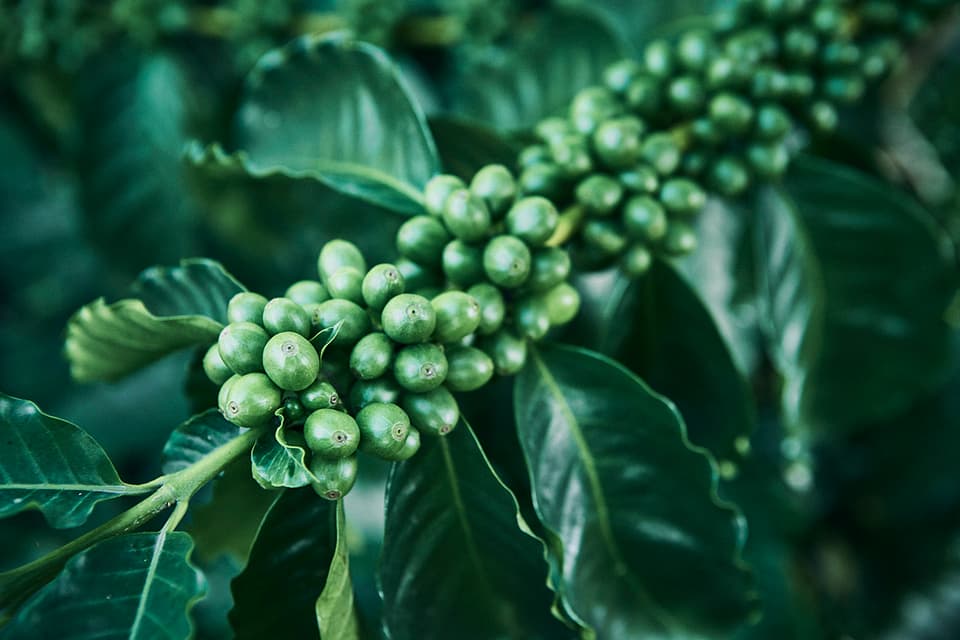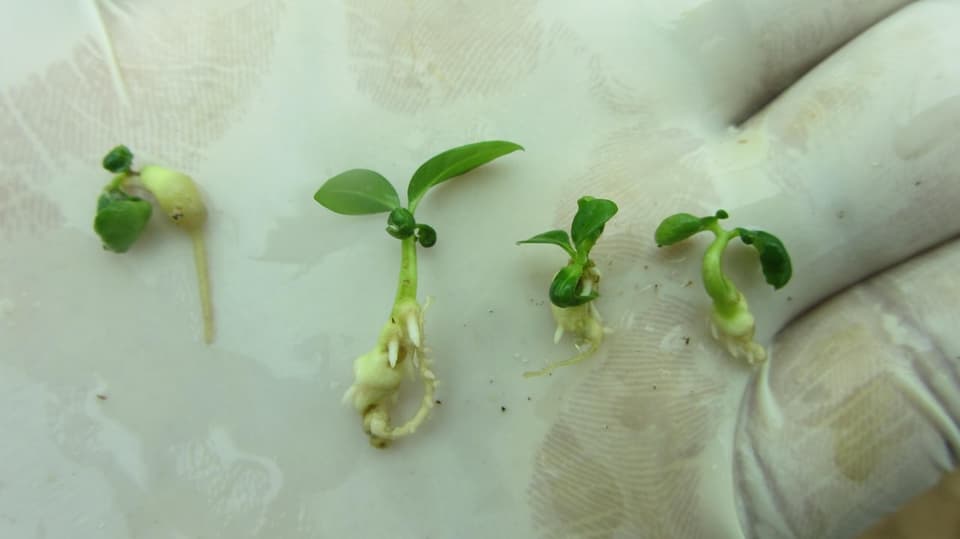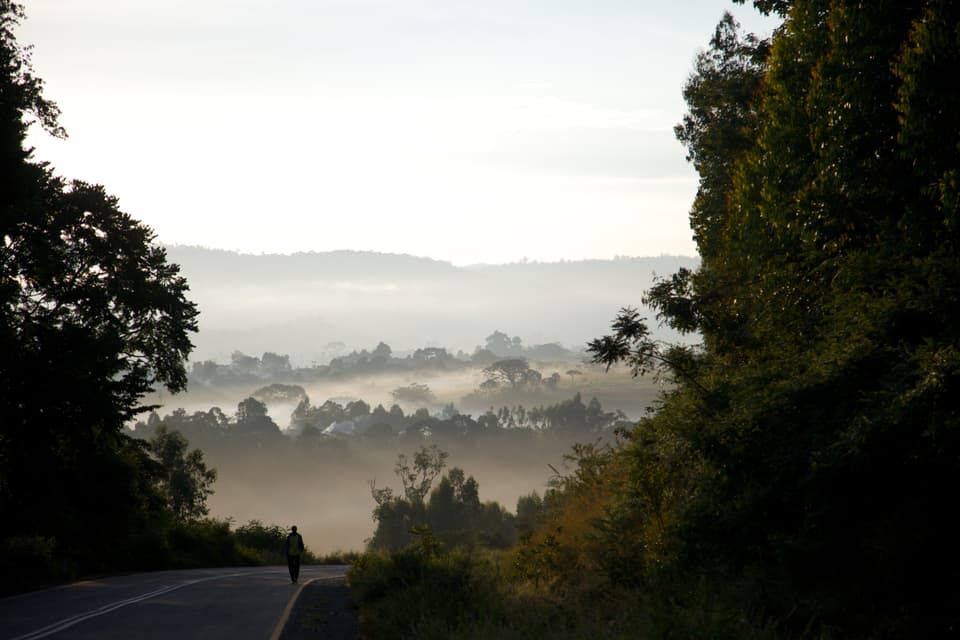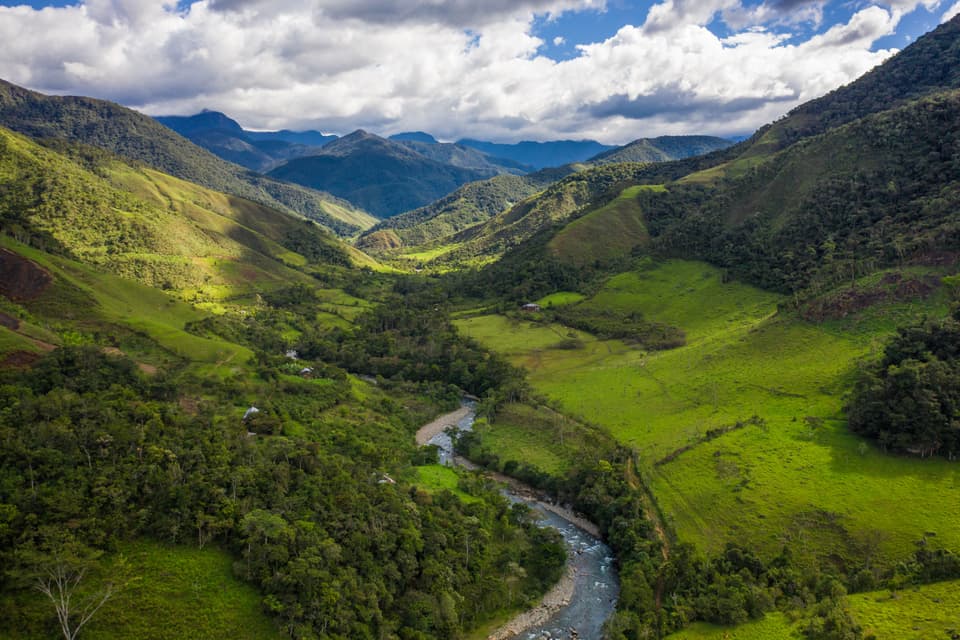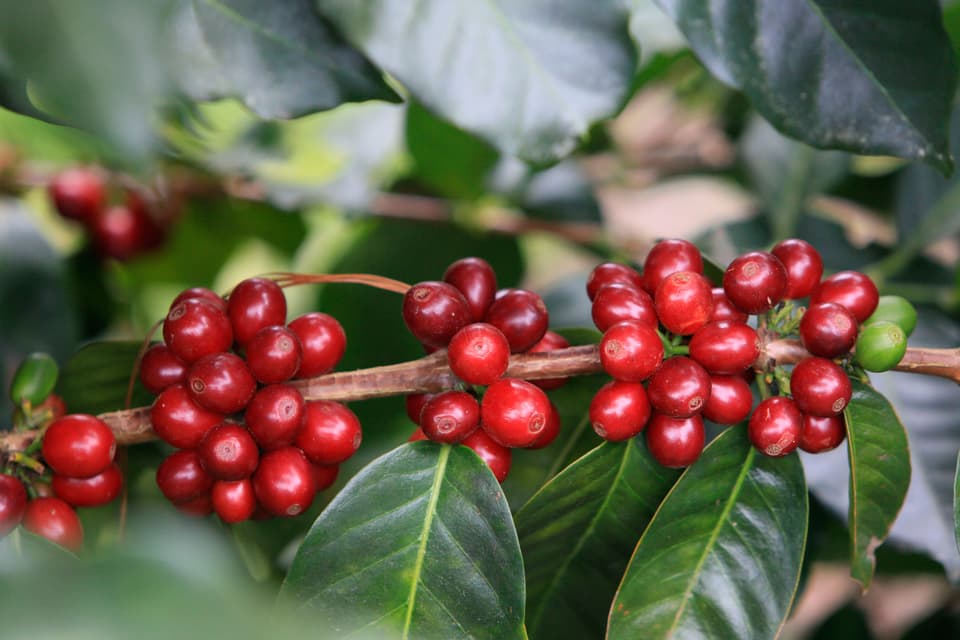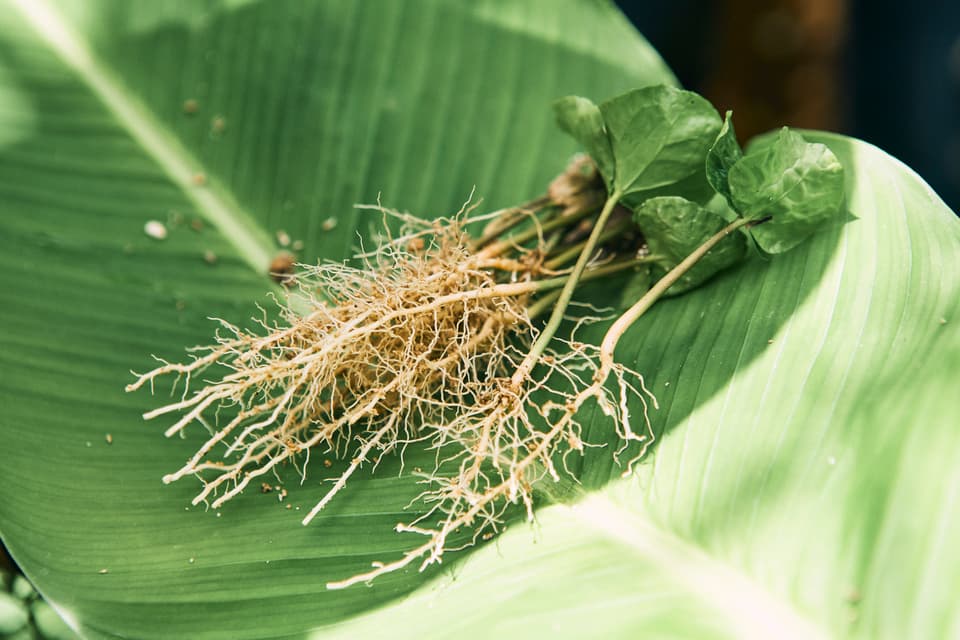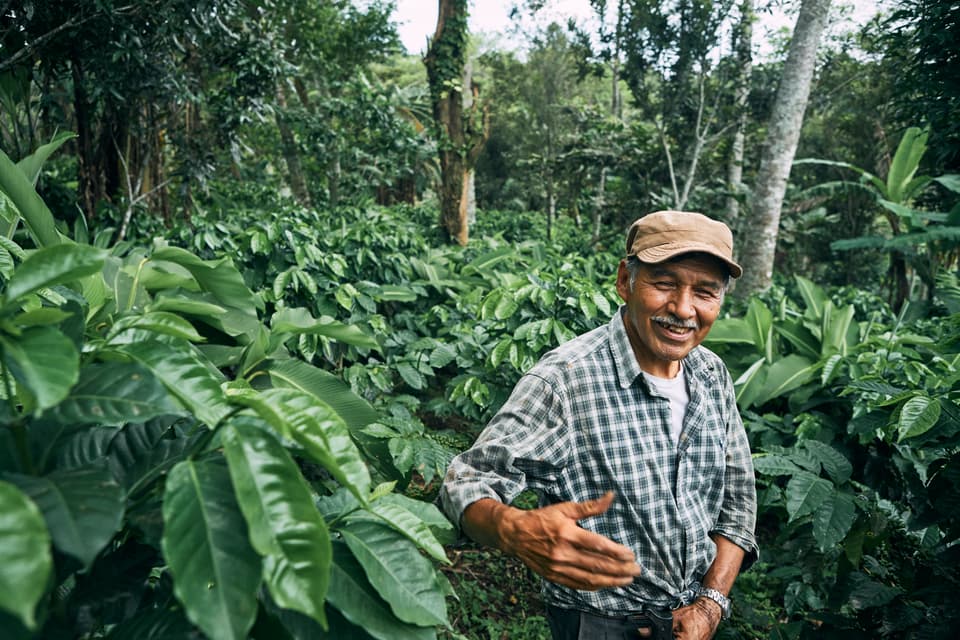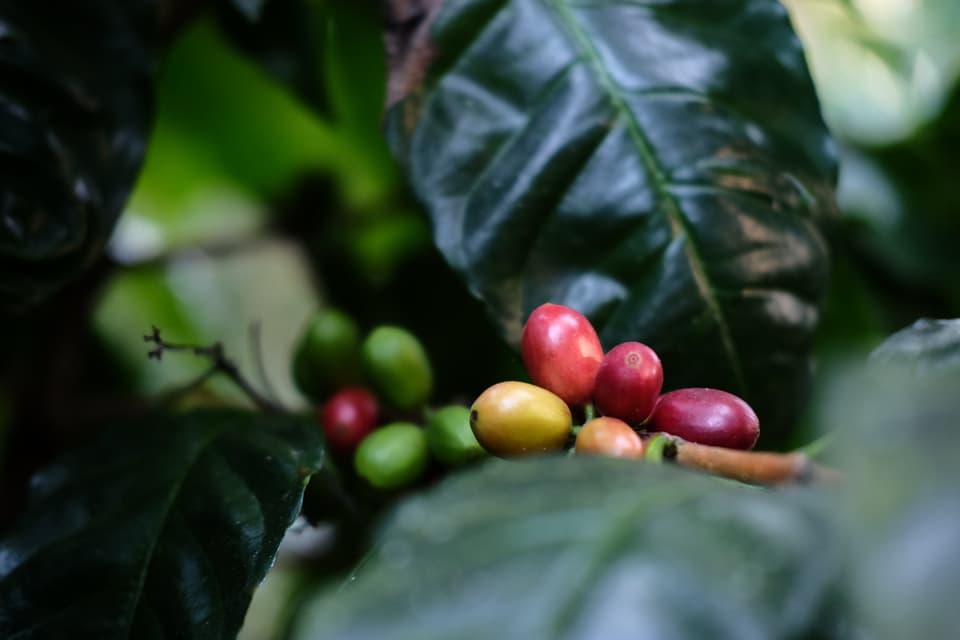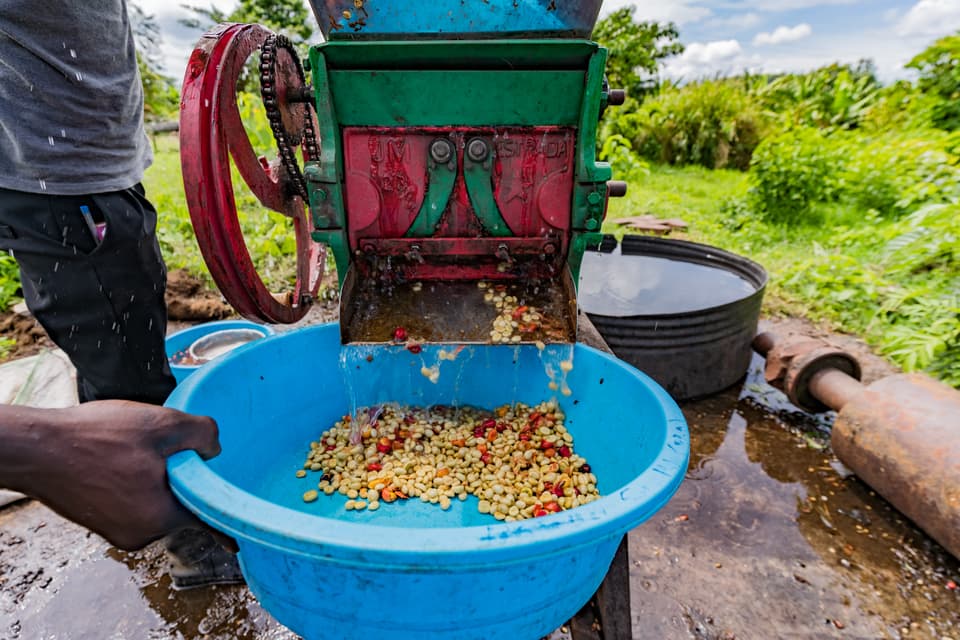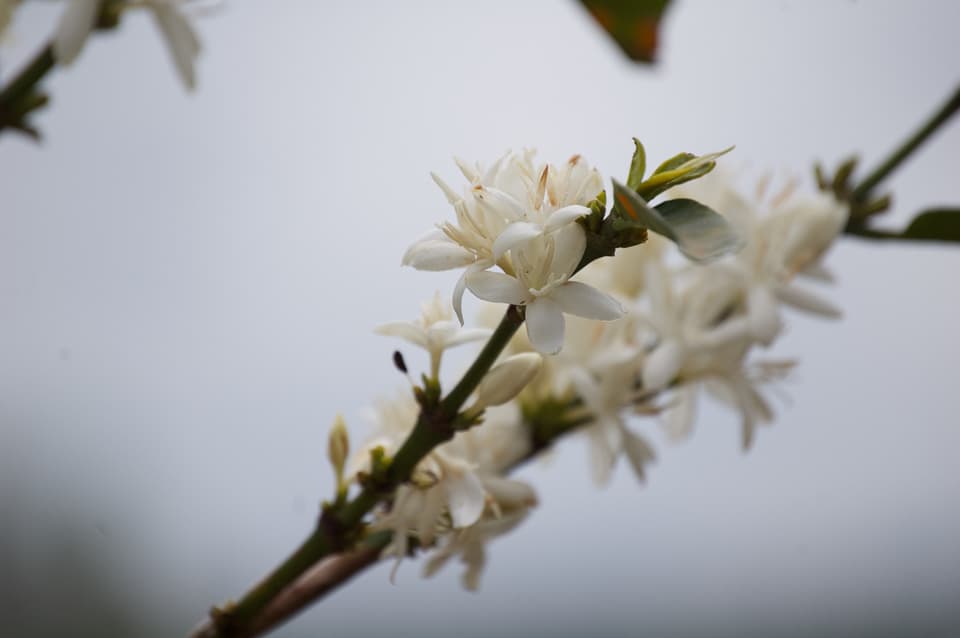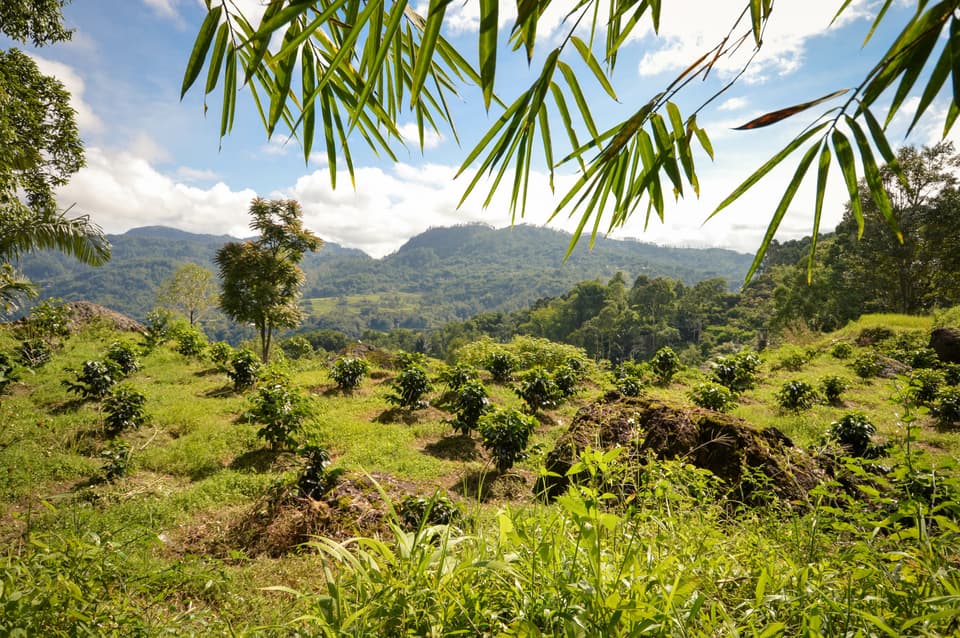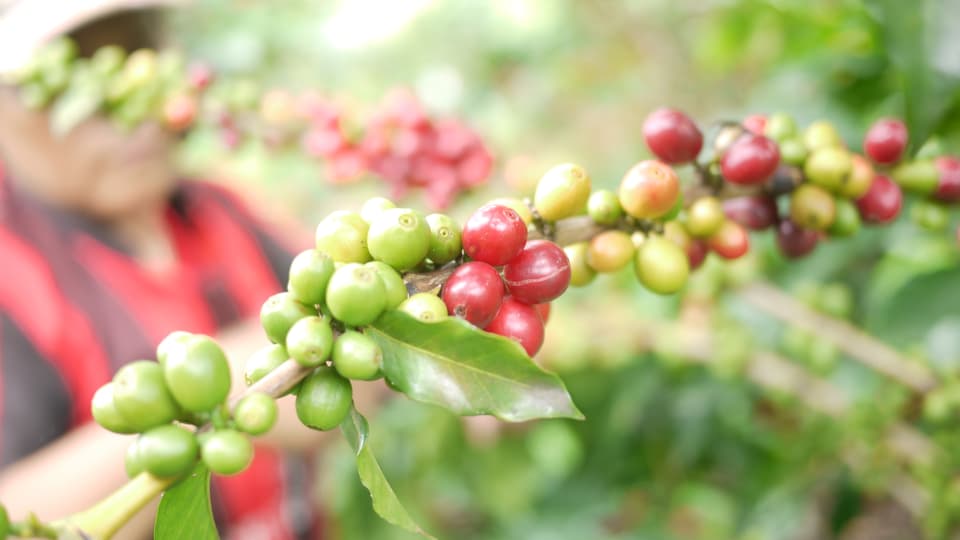Nearly all Indian coffee production occurs under shade, often grown together with other high-value crops. As such, Indian coffee systems are models for the world as we look for solutions for the climate crisis and the economic sustainability of coffee. India also possesses more coffee genetic diversity than most countries, due to coffee’s early introduction from Yemen in the 17th century and proactive national investment in breeding. Over the last four decades, many of India’s 330,000 farmers have gradually shifted production from arabica to robusta in response to the white stem borer and economic pressure, and India has created a niche as the world’s highest-quality producer of robusta.
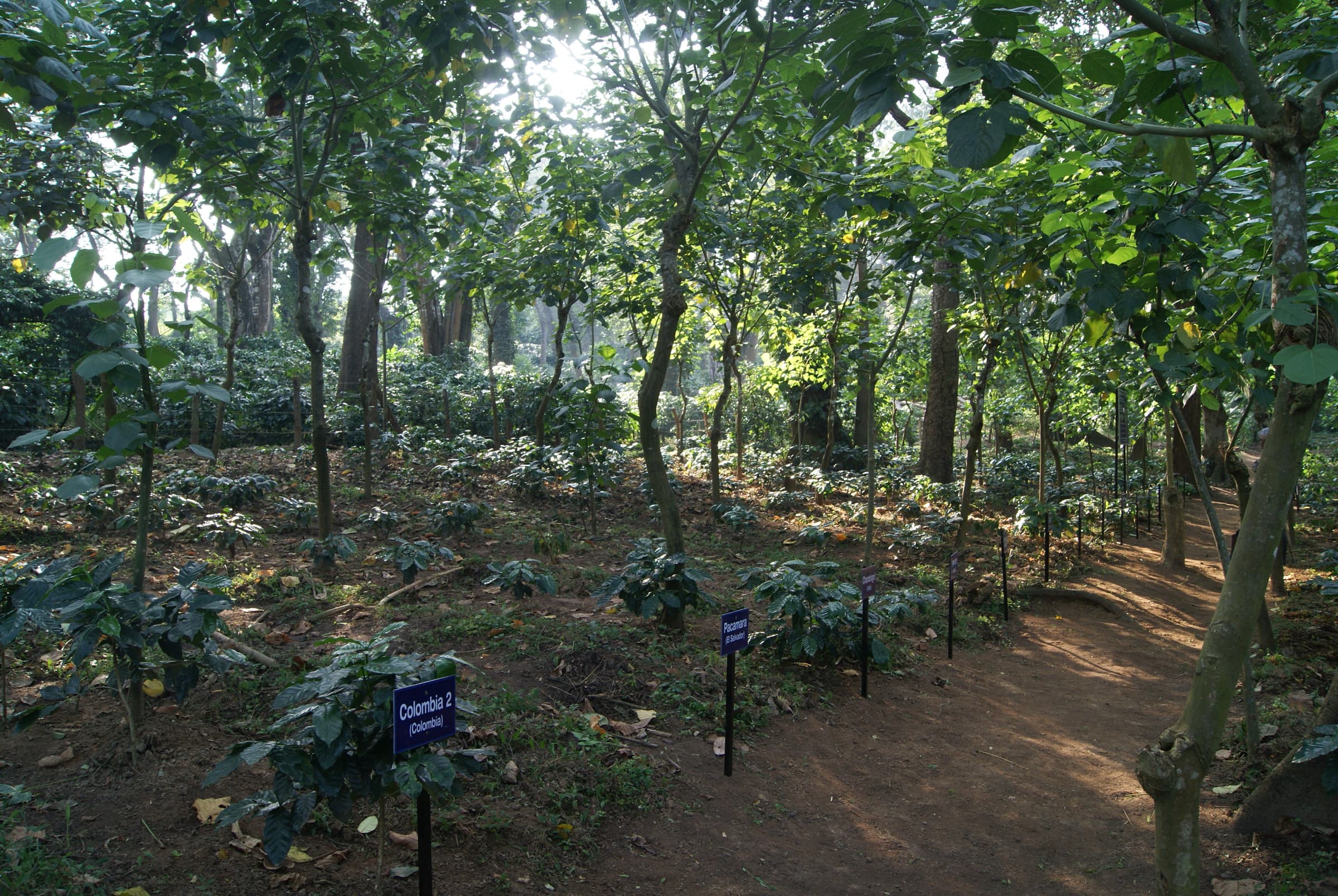
India
India has quietly been near the forefront of coffee research for years, with a decades-long tradition of breeding and supporting farmers to fight diseases and pests. Indian coffee farmers face more disease pressure than farmers anywhere else in the world, and national priorities are focused around creating resistant and climate resilient varieties, along with extension to farmers in support of both goals. Since 2017, WCR has partnered with the Central Coffee Research Institute (CCRI) of the Coffee Board of India to test international varieties as part of the International Multilocation Variety Trial. India has also collaborated in the development of a low-cost arabica and robusta genotyping tool to support modern breeding approaches.
Country Progress
Export volume, three-year average
International Coffee Organization (ICO). 2021. Exports of all forms of coffee by exporting countries to all destinations. Accessed from https://ico.org/trade_statistics.asp?section=Statistics
TBD
Enveritas, 2018. “How many coffee farmers are there? Global coffee farm study”
Food and Agriculture Organization of the United Nations (FAO). 2021. Crops and livestock products. Accessed from http://www.fao.org/faostat/en/#data/QC
Agricultural Science and Technology Indicators (ASTI). 2021. ASTI database. International Food Policy Research Institute (IFPRI). Accessed from: https://www.asti.cgiar.org/data
Calculated using ICO production data and FAO area harvested data
Our Partners

Central Coffee Research Institute (CCRI)
CCRI, established in 1925, is the research and extension arm of the Coffee Board of India. CCRI is located in the heart of Karnataka, India’s most important coffee region. For nearly 100 years, the institute has conducted research on plant breeding, agronomy, agricultural chemistry and soil science, plant physiology, pathology, entomology and post-harvest technology. CCRI has developed numerous improved varieties with tolerance to major pests and diseases.
